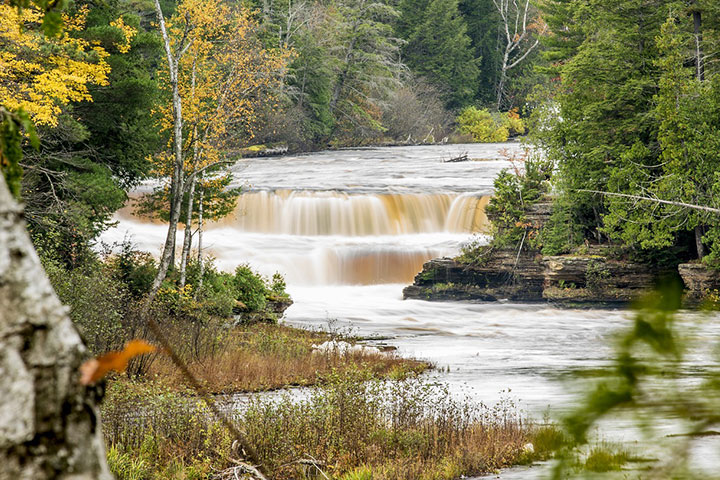Michigan State Parks Sustainable Business Model
Michigan State Parks Sustainable Business Model
Michigan State Parks Sustainable Business Model
Program: Dow Sustainability Fellows Program
Program details » | All Dow Sustainability Fellows Program projects »

Tahquamenon Falls. Image by Jason Gillman from Pixabay
Spotlight on The Future of Michigan State Parks

Michigan’s expansive network of recreational spaces requires a significant monetary investment, both to operate and to maintain. Currently, the bulk of the Michigan State Park System’s revenue is generated by the Motor Vehicle Recreation Passport, endowment funds, and camping fees. The changing demographics and needs of park-goers are likely to cause these revenue streams to decline in the coming decade. This Dow Fellows team devised creative transactional methods to obtain additional revenue, such as charging for firewood, ice, and dog waste bags. To test their ideas, the team created a cost-benefit analysis tool that the Michigan State Park System can use to evaluate all new revenue-generation ideas. (Client: The Nature Conservancy, Michigan Chapter, on behalf of the Michigan Department of Natural Resources)
“We had so many ideas for alternative revenue streams, but we wanted to see which would increase incremental net operating income at the lowest cost to the state.”
(Dow Fellows Program 2019)
The Michigan State Parks System has an expansive network of outdoor spaces, forests, and lakes that offer numerous recreational opportunities to Michiganders. The parks system has been facing increasing costs for over a decade to keep up with maintenance, improvements, and shifting demographics. The current funding sources are enough to cover operational costs, but not the increasing cost of capital maintenance projects due to park usage trends. Working with The Nature Conservancy, a Dow Fellows team examined short- and long-term solutions that could be implemented to increase park revenue generation so the parks can be more self-sustaining. They helped reassess the parks system’s revenue model. A short-term recommendation includes implementing a fee-for-service business model, such as charging park goers for sunscreen or camp showers. A long-term solution includes investing in more urban parks for those who live in metro Detroit. The team recommends that the parks system adopt these cost-effective solutions to create a sustainable and consistent base of revenue from a large array of sources without raising user prices.
Location: Western Upper Peninsula, Michigan
Project Advisor: Prof. Thomas Lyon
Project Team: Kevin Bosma, Ross School of Business and School for Environment and Sustainability (SEAS); Chantelle Barretto, Ross School of Business and SEAS; Olawunmi Oduyebo, School of Information; Harrison Rogers, Ross School of Business and SEAS; and Guy Packard, Gerald R. Ford School of Public Policy
Project Consultant: Michael Kay